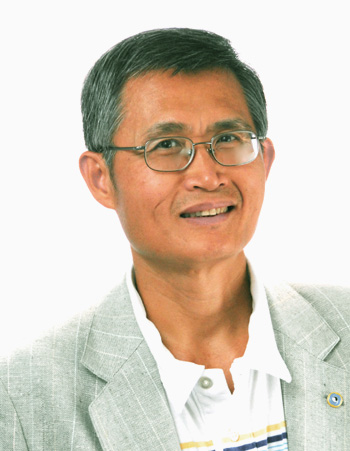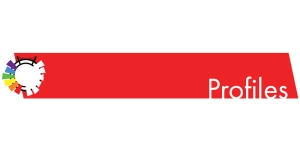The 20th IAICS International Conference Call for Submissions
Theme: Enhancing Global Community, Resilience and Sustainability Through Intercultural Communication
July 31-August 4, 2014, University of Rhode Island, Providence, RI, USA
People around the world are interconnected, interdependent and mobile. Scholars and practitioners are more aware of the necessity to develop strong intercultural relations, based on mutual understanding in the context of intercultural interaction. Intercultural Communication has become a dominant paradigm connecting a range of disciplines. Globalization and increased diversity heighten the risk of communication failures and misunderstandings due to ethnocentrism, prejudice, sexism and environmental, social, and technological issues. They include Climate Change; Pollution and Resource Depletion; Global Food and Water Supply; Impact of Information Technology and Social Media; Political Oppression, Conflict and War; Poverty; Societal Security and Personal Safety. Global communication plays a key role in solving these problems. Increasingly we must learn to rely on each other, build resilience, resolve conflicts peacefully, and strive for social equity by enhancing intercultural communication. The conference theme focuses on aspects of interpersonal, inter-group and international communication. We must address both theoretical and empirical studies, as well as develop new conceptual and methodological approaches to affirm the centrality of the discipline. Collaborative research needs to stress communication and embrace synergies by joining efforts with other disciplines, including environmental and health sciences, business, engineering and information systems. Topic areas are broadly defined as, but not limited to, the following:
– Advertising and marketing
– Business communication
– Climate change and pollution
– Conflict, mediation and negotiation
– Corporate culture and management
– Communication failures
– Communication pedagogy
– Crisis/risk communication
– Critical cultural awareness
– Cross-cultural adaptation
– Cultural identity
– Culture and diplomacy
– Diversity of languages and cultures
– Ethnocentrism and stereotypes
– Environmental communication
– Ethnic studies
– Gender issues
– Global community
– Global food and water supply
– Group/Organizational communication
– Health communication
– Immigration and mobility
– Intercultural communication competence
– Intercultural communication in global context
– Intercultural communication and politics
– Intercultural conflict
– Intercultural education practices
– Intercultural interaction in science
– International journalism
– Interpersonal communication and relations
– Linguistics and intercultural communication
– Localization and globalization
– Media and social research
– Multiple cultures and interculturality
– New media and visual communication
– Philosophy and human behavior patterns
– Poverty
– Power in intercultural communication
– Psychological communication studies
– Public opinions and public policy
– Public relations
– Racial discrimination and ethnic relations
– Resource depletion
– Religion/spiritual communication
– Resilience among cultures
– Rhetorical communication
– Social equity
– Stereotypes and stereotyping
– Sustainability and globalization
– Translation studies
– Understanding across cultures
– Verbal and nonverbal communication
Guidelines for Submissions
Categories: Abstract, panel proposals, and workshop proposals may be accepted.
• Abstract, 150-250 words in English, including positions, affiliations, email addresses and mailing addresses for all authors. See the sample format of the abstract below.
• Panel proposals reflecting the conference theme may be submitted. All panel proposals should provide a 100-word rationale and a 100-200 word abstract of each panelist’s paper; include affiliation and email addresses for each panelist.
• Workshop proposals relevant to the conference theme may be submitted. Proposals should be 3-5 pages in length, single spaced.
Deadline: Please submit abstracts and complete panel proposals by February 1, 2014. All submissions will be peer-reviewed.
Submission to: iaics2014uri AT gmail.com
Conference hosts: International Association for Intercultural Communication Studies and the Harrington School of Communication and Media, University of Rhode Island.
Conference languages: English
 He was the recipient of the 1987 outstanding dissertation award presented by the NCA International and Intercultural Communication Division. Chen is the founding president of the Association for Chinese Communication Studies. He served as Chair of the ECA Intercultural Communication Interest Group and at-large member of the SCA Legislative Council, and currently he is the President of the International Association for Intercultural Communication Studies. He is also the co-editor of Intercultural Communication Studies, China Media Research, and International and Intercultural Communication Annual, and serves on the editorial board of different professional journals.
He was the recipient of the 1987 outstanding dissertation award presented by the NCA International and Intercultural Communication Division. Chen is the founding president of the Association for Chinese Communication Studies. He served as Chair of the ECA Intercultural Communication Interest Group and at-large member of the SCA Legislative Council, and currently he is the President of the International Association for Intercultural Communication Studies. He is also the co-editor of Intercultural Communication Studies, China Media Research, and International and Intercultural Communication Annual, and serves on the editorial board of different professional journals.
